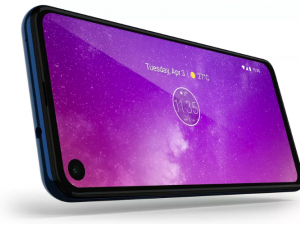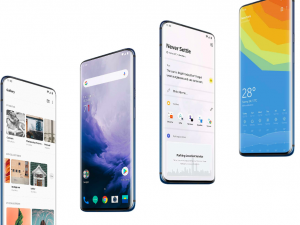Google Pixel 3a: Everything You Need To Know
Damien McFerran 08/05/2019 – 9:08am
A cheaper Pixel
The Pixel 3 and Pixel 3 XL haven’t set the world alight in terms of sales, and recently Google publically lamented the fact that its flagship smartphones have failed to find the audience they deserve. However, yesterday the company proved it is in this for the long game by announcing the Pixel 3a and Pixel 3a XL, two new variants which look very similar but are significantly cheaper than the ‘full fat’ Pixel 3 devices.
The Design

On the surface, the new phones are almost indistinguishable from their forerunners, boasting the same basic design and the same single-camera setup on the rear. However, the case is made from polycarbonate on both phones, whereas on the original Pixel 3 handsets it was glass. This naturally allows Google to hack down that RRP, but means the Pixel 3a and Pixel 3a XL aren’t capable of wireless charging. There’s also no water or dust resistance, but on the upside, a 3.5mm headphone socket is included – something that was missing on the original Pixel 3 models.
The Specs

When the Pixel 3a was rumoured a while back, it was suggested that Google would cut corners by giving the device a standard IPS LCD screen, but in reality the company has stuck with the OLED panel for this outing. That’s both a blessing and a curse; the smaller Pixel 3 had a troublesome LG-made panel and if that’s the case again for the Pixel 3a, it might be wise to opt for the larger version, which — if it follows the pattern of the Pixel 3 XL — will have a Samsung-made screen. It's also worth noting that the Pixel 3a XL has a smaller 6-inch screen when compared to the Pixel 3 XL's 6.3-inch display.
Under the hood is where you’ll find perhaps the biggest change. While the Pixel 3 and Pixel 3 XL were rocking Snapdragon 845 processors — the most advanced Qualcomm silicon at the time of their launch — the Pixel 3a and Pixel 3a XL have the more modest Snapdragon 670. This is a much weaker variant which means the 3a models will be noticeably slower than their bigger brothers.
There's 4GB of RAM to keep things ticking over (the same as with the original Pixel 3), but in terms of storage, you're a little more limited than you were with the original Pixel 3 handsets. The only option for both the 3a and 3a XL is 64GB, whereas you could get the original Pixel 3 devices in a 128GB variant.
The batteries have taken a subtle upwards bump though, with the Pixel 3a sporting a 3,000mAh cell (compared to the Pixel 3's 2,915mAh) and the 3a XL now has a 3,700mAh battery (compared to the Pixel 3 XL's 3,430mAh).
The Camera

On paper, it would seem that Google has struck gold when it comes to photography here – the Pixel 3a and 3a XL sport the same 12-megapixel sensor that their forerunners have, and fancy modes like Night Sight also make the cut. The idea of having such a powerful camera at a mid-range price point is stunning, but cuts have been made here, too.
The 3a models lack the all-important Pixel Visual Core imaging chip, which is what did a lot of the AI-related heavy-lifting on the Pixel 3 and Pixel 3 XL. Without it, the camera can't rely as heavily on software-related optimisations and as a result, you may find that it takes a few more shots to get the 'perfect' photo on the Pixel 3a. The 8-megapixel wide-angle selfie camera is also missing, replaced by a standard variant which means you can't cram as many people into a shot.
The Price

The Pixel 3a will cost £399 while the Pixel 3a XL will retail for £469. That's almost half what Google was asking for the original Pixel 3 models a few months back.
Should You Buy The Google Pixel 3a?
Given the fact that these devices share so many common features with the more expensive Pixel 3 phones, it begs the question: which one do you buy? Well, according to Google's own figures, it's clear that most of you have held off buying the Pixel 3 or Pixel 3 XL, so the answer is pretty simple. The Pixel 3a range offers the same amazing camera and attractive design at a much more agreeable price point, making it the most attractive route into the world of 'pure' Android since Google ended its Nexus line of devices.
In fact, if you're in the market for a mid-range device then Google has suddenly jumped right to the front of the queue, leapfrogging the likes of Huawei, Motorola and Xiaomi, all of which have staked a claim to this sector of the market over the past few years. Even without the Visual Core, the Pixel 3a is capable of flagship-quality photos and when this is combined with the speed of 'pure' Android 9, it's hard to ignore the appeal of this device. At £400, it's certainly worth a look – we just hope that Google has solved the screen problems that plagued the smaller of the Pixel 3 handsets.




